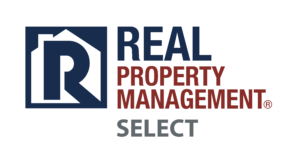The Best and Worst Times to Sell or Buy a House in 2024
One of the most common questions in real estate is: When is the best and worst time to sell or buy a house? The answer is complex, influenced by location, market conditions, personal preferences, and goals. However, there are general trends and patterns that can guide you in making an informed decision. Let’s explore the best and worst times to sell or buy a house in 2024, based on historical data, expert opinions, and future projections.
Best Time to Sell: Spring
Spring is the Peak Season for Sellers
According to Zillow, the best month to sell a house in the US is May, with an average premium of 5.9% over the median sale price. Here’s why spring is advantageous:
– High Demand: Home buyers are eager to find their dream home before summer.
– Favorable Weather: Longer days and better weather enhance curb appeal.
– Family Moves: Families prefer to move during this time to settle before the next school year starts.
Location-Specific Considerations
The ideal time to sell can vary based on location and property type:
– Ski Resorts: Winter may be better for selling properties in ski resorts.
– Beach Houses: Summer might attract more buyers for beachfront properties.
Worst Time to Sell: Winter 2024
Winter is the Slowest Season for Sellers
Zillow reports that December is the worst month to sell a house in the US, with an average discount of 3.3% below the median sale price. Here’s why winter poses challenges:
– Low Buyer Motivation: Fewer buyers are willing to move during holidays and cold weather.
– Less Curb Appeal: Dull landscapes and shorter days can make homes less attractive.
– Holiday Distractions: Potential buyers are often preoccupied with holiday plans.
Exceptions to Consider
Certain properties might still perform well in winter:
– Cozy Cabins: Winter can be a good time to sell a cozy cabin or holiday home.
Best Time to Buy: Fall 2024
Fall is the Optimal Season for Buyers
According to Realtor.com, October is the best month to buy a house in the US, with an average discount of 6.1% below the median listing price. Here’s why fall is beneficial:
– Seller Flexibility: Sellers are more willing to negotiate and lower prices after the summer rush.
– Increased Inventory: More options are available with less competition.
– Better Deals: Buyers can take their time to compare and find the best deals.
Location and Property Type Factors
The best time to buy can vary based on specific circumstances:
– College Towns: Avoid fall if buying in college towns due to higher demand.
– Tourist Destinations: Prices may still be high in popular tourist areas.
Worst Time to Buy: Spring 2024
Spring is the Toughest Season for Buyers
Realtor.com indicates that April is the worst month to buy a house in the US, with an average premium of 4.1% above the median listing price. Here’s why spring is challenging:
– High Seller Confidence: Sellers are less flexible with pricing.
– Limited Inventory: More competition among buyers leads to bidding wars.
– Market Frenzy: The peak selling season results in higher prices and more pressure.
Potential Exceptions
In some markets, spring might still offer good opportunities:
– Rural Areas: Lower supply and demand can make spring a viable time to buy.
– Niche Markets: Specialized markets may not follow general trends.
Understanding the best and worst times to buy or sell a house can help you make more informed decisions in the real estate market. While these general trends provide a helpful starting point, always consider local market conditions, your personal circumstances, and specific property types. At Real Property Management Select, we are here to help you navigate the real estate landscape and make the best choices for your needs.
Stay updated with us for more insights and tips on managing your real estate investments effectively.


